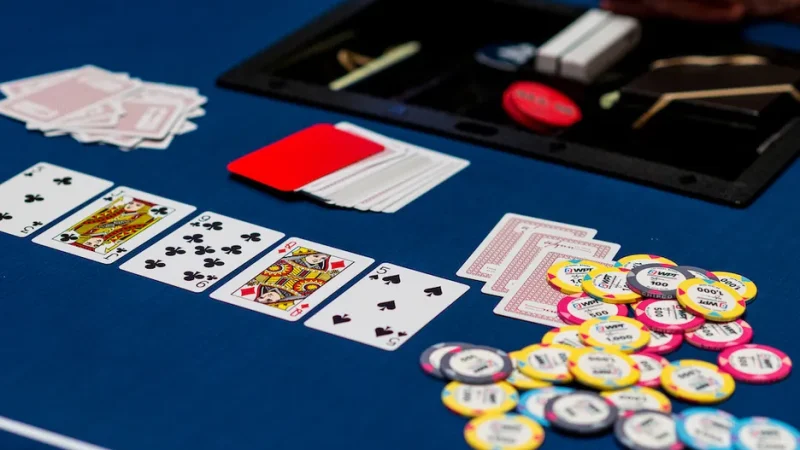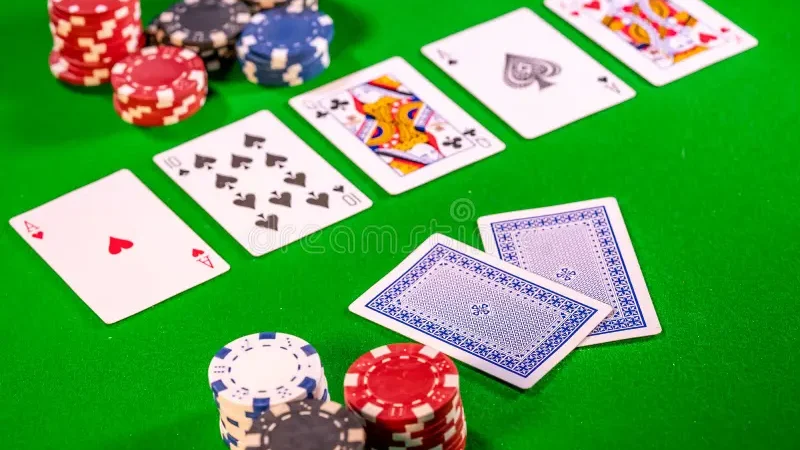Poker Strategies for Neurodiverse Players: Playing to Your Unique Strengths
Let’s be honest. The world of poker strategy can feel… monolithic. It’s all GTO charts, complex math, and a certain type of relentless, analytical pressure. For neurodiverse players—those with ADHD, autism, dyslexia, or other cognitive variations—trying to fit into that rigid mold can be exhausting. It can make you feel like you’re playing with one hand tied behind your back.
But here’s the deal: neurodiversity isn’t a disadvantage at the poker table. It’s a different set of tools. The key isn’t to force yourself to think like everyone else; it’s to build a strategy that leverages your unique brain wiring. This is about finding your edge, not fixing a problem.
Reframing the Game: Your Mind is an Asset
Traditional poker advice often misses the mark for neurodiverse thinkers. It assumes a one-size-fits-all approach to focus, memory, and social interaction. But what if your tendency to hyperfocus lets you spot patterns others miss? Or your literal thinking helps you avoid common emotional traps? Let’s dive into some specific approaches.
For Players with ADHD: Harnessing the Torrent of Ideas
ADHD can feel like having a browser with 50 tabs open at once. At the poker table, this can lead to distraction, impulsivity, and boredom during a long session. The trick is to channel that mental energy, not fight it.
- Create Structured Pre-Flop Routines: Impulse calls are a major leak. Develop a strict, written-down pre-flop chart for the limits you play. This acts as a guardrail, saving your mental energy for post-flop decisions where your creativity can shine.
- Embrace Short, Focused Sessions: Forget the marathon eight-hour grind. Plan for 60-90 minute sessions where you can commit 100% of your attention. Two sharp, short sessions are infinitely more profitable than one long, distracted one.
- Turn Hyperfocus into a Weapon: When you’re “in the zone,” you can process information at an incredible rate. Use this to intensely study one or two opponents, tracking their bet sizing, timing tells, and showdown hands. You might just build a more accurate profile than any tracking software.
For Autistic Players: Leveraging Pattern Recognition and Depth
Poker is, at its core, a game of patterns—mathematical probabilities, betting sequences, player tendencies. This is where many autistic players have a natural, profound advantage. The challenge often lies in the social nuance and the sensory environment.
- Master the Math, Trust the Math: Your ability to deeply engage with numbers and logic is a superpower. Dive into pot odds, implied odds, and equity calculations. While others play a “feel” game, you can build your strategy on an unshakable logical foundation.
- Develop a “Social Script” for Tells: Reading people doesn’t have to be about intuition. Treat it as a data collection problem. Focus on concrete, observable behaviors: Does a player’s breathing change when they bet? Do they stack their chips differently with a strong hand? Create a systematic checklist rather than trying to guess “what they’re feeling.”
- Control Your Environment: If you’re playing live, noise-canceling headphones can be a game-changer. Online, customize your table layout and disable distracting animations. Reducing sensory overload frees up cognitive resources for the game itself.
Universal Adjustments for Neurodiverse Poker Success
Okay, so beyond specific diagnoses, there are some overarching strategies that can help almost any neurodiverse player thrive. It boils down to self-awareness and building a system that works for you.
Bankroll Management You Can Actually Stick To
This is crucial for everyone, but especially here. The emotional swings of poker can be amplified for neurodiverse individuals. A solid bankroll plan is your safety net. It removes the fear of going broke and allows you to make rational decisions. A good rule of thumb? Have at least 50 buy-ins for the level you’re playing. Seriously. It’s that important.
Game Selection: Find Your Pond
You wouldn’t use a fishing rod in a shark tank. Don’t play in games that actively work against your strengths. Love deep, analytical play? Avoid fast-fold poker sites where decisions are made in seconds. Prefer a predictable, logical environment? Seek out tournaments with deep stacks over hyper-turbos. Your win rate isn’t just about how you play, but where you play.
Using Technology as a Coping Mechanism
Let’s face it, technology can be a great equalizer. Use it.
| Tool | How It Helps |
| Poker Tracking Software (e.g., Hold’em Manager) | Offloads memory demands. Provides objective data on your play and your opponents’, reducing reliance on gut feeling. |
| Note-Taking Features | Allows for systematic, detailed player notes. “3-bet 78s from the button” is a concrete, actionable note. |
| Timer Extensions | Takes the pressure off needing to decide quickly. Gives you the space to think through complex spots. |
The Mental Game: It’s Different for You
Conventional poker psychology talks about “tilt” as an emotional reaction to a bad beat. For neurodiverse players, tilt can also be a form of cognitive overload. The screen is too bright, the chat is annoying, you’re hungry, and now you’ve lost a coin flip. It’s not just anger—it’s a system shutdown.
Recognize your personal early warning signs. Is it a tightness in your chest? Rushing your decisions? Starting to mutter to yourself? Have a pre-planned break routine. Get up. Walk away from the screen for five minutes. Stretch. Drink water. This isn’t a waste of time; it’s a strategic reset that protects your bankroll.
Conclusion: The Table is Big Enough for Every Mind
The greatest poker players in the world weren’t great because they all thought the same way. They were great because they found a unique approach that leveraged their innate talents. Your neurodiversity is part of your poker identity. It comes with its own set of challenges, sure. But it also brings perspectives and strengths that are rare—and therefore valuable.
Don’t try to silence the way your brain works. Listen to it. Build your game around it. The most powerful poker strategy you’ll ever develop is the one that is authentically, uniquely yours.








